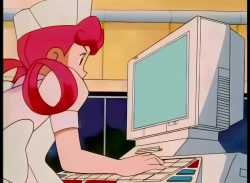>>55533821L1: Semicolon becomes colon. Second statement is not just related, it's defining the term "something unique."
Page 1: Pacing. You have 3 meaty paragraphs, then 2 shorts, then 2 adrift sentences. It feels like you wrote 1-sentence stubs in an outline of the chapter, fleshed a few, and left the others as stubs. That shifts the feel from kinda purple and wordy to disorganized/incomplete. Especially in light of the protagonist's introduction.
We're given a paragraph of setting, that's fine. Then who takes the stage? House. OK, now we're ready for MC, the word "I" is in the next sentence… no, more setting and a Mom infodump. Why describe Mom? Why not meet Mom?
Para 4, now we're told this isn't present but a retrospective with establishment of a bad day somewhen. But first, more backfill. Leave home, more ambiance, learning from the sailors, but Para 5's one sentence = "Library exists."
This is where you lose me as a reader. But I scroll down a bit as a critic.
The first scene is opening the letter. But other than mail being a daily thing it's not related to all this setting establishment.
Imagine a really good anime film, like Ghibli tier. They'll open with a lot of place establishment through beautiful art. You're writing, you must establish by SHOWING with words, not _just_ telling.
Open with MC bringing home library books because the rain stopped. Let him talk for a moment with a sailor, but MC doesn't have time for a story, today. Prove the port is vibrant by him hearing the sounds, seeing the boats, counting the wingull flying in formation overhead. Describe the shack as MC approaches, show Mom catching a tenta and bringing it in to prepare it, and have MC grab the mail from the box on the way in.
It's a lot easier on the reader to let now be now, then timeskip ahead, than to establish a false now and keep teasing "but things turned to shit and this narrative is from shit future ooga booga." Reader doesn't care about MC till we get to know him.

